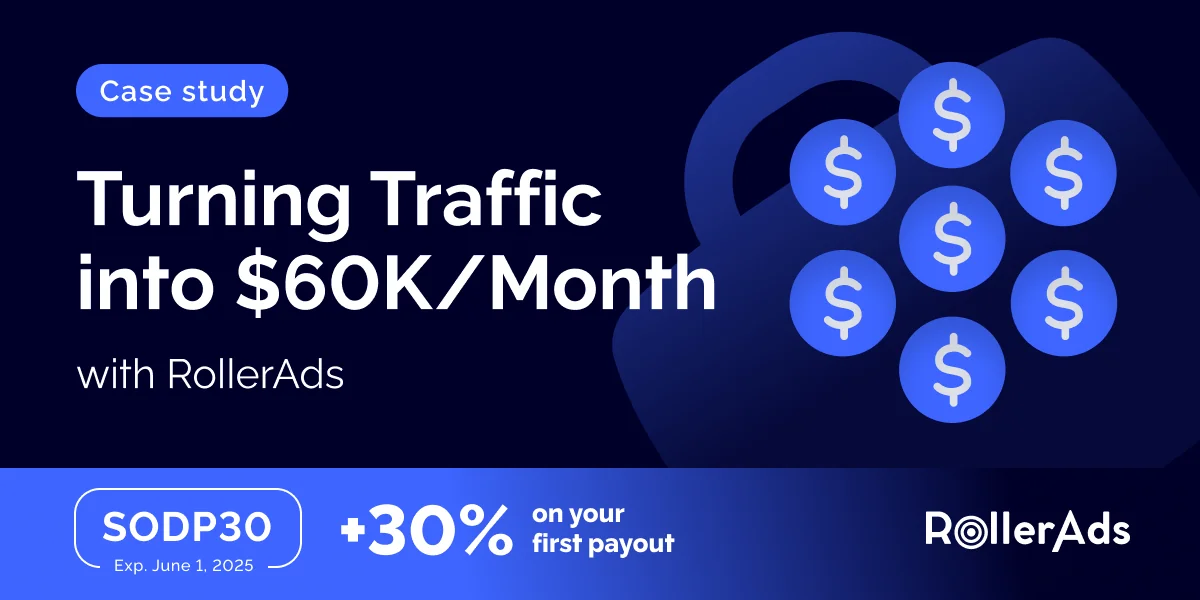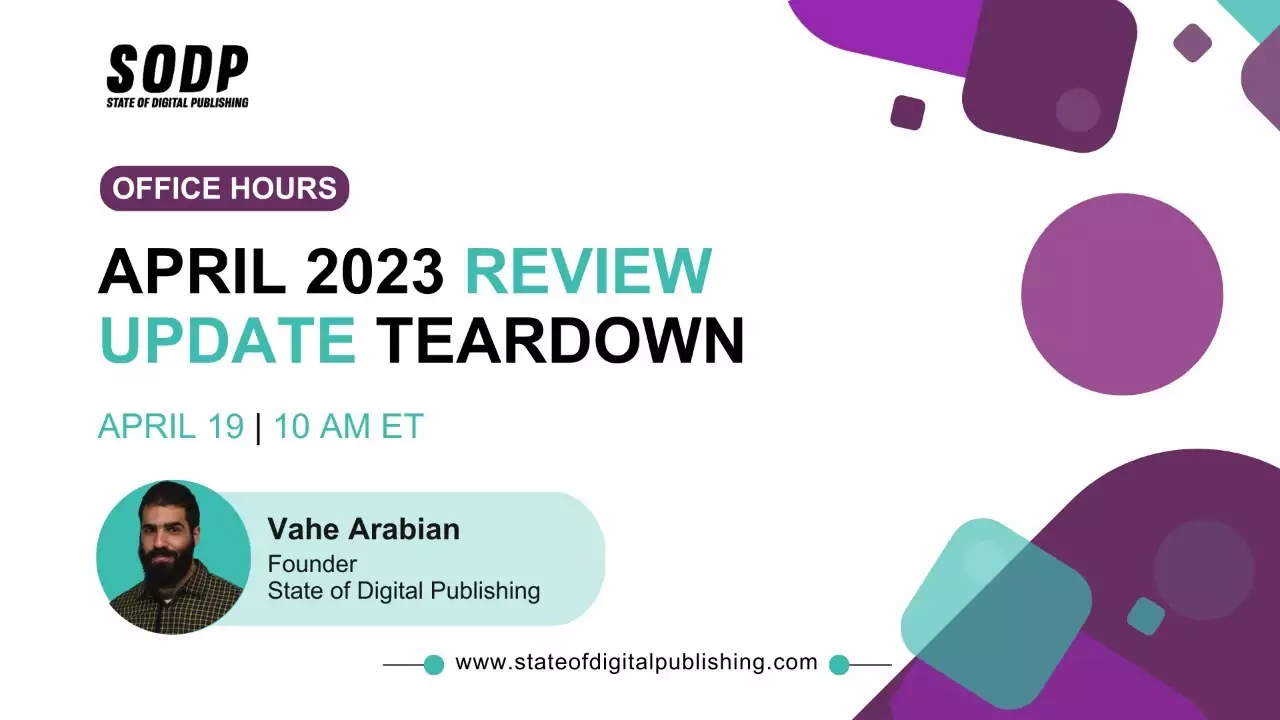What’s been happening in the world of digital publishing over the last week? Here’s your weekly round-up of news, announcements, product launches, and more.
Advertising
Google starts global tests of Privacy Sandbox ad targeting
Google has just announced the next stage of trials of its Privacy Sandbox proposal — focused on ads relevance and measurement.
The Sandbox refers to an evolving — and now very closely overseen — ad targeting tech stack which Google has proposed for replacing tracking cookie-based targeted advertising in Chrome by (at the earliest) the second half of 2023 with alternatives which it argues will be better for users’ privacy yet still effective for generating ad revenue. Read more
Why it matters: As the article points out, “As well as being complex and acronym-ridden, Google’s Sandbox plan has attracted no shortage of controversy.
Most notably, antitrust regulators in Europe stepped in following complaints from publishers and advertisers who argue that Google’s plan to deprecate tracking cookies will simply entrench its market power.”
Audience engagement and growth
Morning Brew tops 4 million newsletter subscribers as it looks to expand with M&A
Morning Brew is ready for adulthood.
What started as a light-hearted business newsletter for college kids by two students in their University of Michigan dorm room has become a multidimensional media operation. The company’s core product, the daily Morning Brew newsletter, has topped 4 million subscribers after racing by 3 million just months ago, co-founder Austin Rief told CNBC in an interview. Read more
Why it matters: As pointed out in the piece, “Many newsletters developed during the Covid pandemic as easy ways of disseminating information to remote, dispersed audiences. Legacy media outlets such as The Wall Street Journal and Bloomberg have thrown resources at them to build loyal audiences and subscribers. The New York Times has more than 71 newsletters, Digiday reported last year. Smaller media companies such as Axios, Politico, Punchbowl and Puck also count on them as ways to extend their reach.
Still, there are signs that newsletter growth has a ceiling.”
Axios acquires The SF Minute
Axios announced its acquisition of The SF Minute. The founder of The SF Minute, Nick B., elaborates in his statement: “I started The SF Minute last year to create an easy way to stay on top of local news. And the response has been incredible.
Thousands of people read the newsletter each day and hundreds are paying members. The SF Minute will continue to exist for a bit longer. But in the next couple of months, you can expect to see it become Axios San Francisco.” Read more
[NY Times] Introducing the Experiments and Personalization Team
The New York Times has introduced its new personalization team.
“How can we tailor the home screen so that it is more relevant for each reader? How can we further amplify the Times editorial judgment that we know our readers value? How can we better organize and display our report — from live briefings to columns; from bursts to recipes — to make it easier for them to connect and engage with the breadth of Times journalism?
To answer these questions, we have assembled a team to explore new ways of programming the home screen. With input from desks and product teams, they will test myriad hypotheses, with a focus on engaging our subscribers and getting them to come back to us more frequently. These experiments will include things like targeting readers based on location or reading history or testing new kinds of content packages.” Read more
Tech
Spotify puts its Podz acquisition to use with test of new podcast discovery feature
Spotify acquired podcast discovery platform Podz last summer for roughly $49.4 million, per a Securities and Exchange Commission filing, to help accelerate the streamer’s extensive investments in podcasts. Now, Spotify is testing a feature that leverages the startup’s technology to help users find new podcasts they may like, the company confirmed. Read more
Why it matters: As the authors point out, “Podz had originally attempted to solve the problem of podcast discovery with something it called the “first audio newsfeed.” That is, it presented users with 60-second audio clips from various shows that you would scroll through in a vertical feed, similar to the format popularized by social apps like TikTok. What made the company’s technology interesting is that it didn’t rely on podcast creators to produce their own clips for its feed. Instead, it used a machine learning model that had been trained on some 100,000 hours of audio to help automatically select clips to showcase.”
Embedded Commerce Solution Used By Major Publishers Raises Series A Capital
Bonsai, the Toronto-based ecommerce platform used by BuzzFeed, Vox Media, Refinery 29 and others, announced it has raised $21 million in Series A financing led by Framework Venture Partners, also based in Toronto.
Proceeds from the financing will be used to improve existing product capabilities and explore new verticals. In addition, Bonsai plans to expand its retail-partner supply into new categories, which are currently centered around fashion and beauty. Read more
Why it matters: Bonsai CEO Saad Siddiqui said one premise is that customers discover products to buy outside of publisher content “And Bonsai is now well-equipped to explore what those additional embedded commerce applications may look like, while continuing to power seamless checkout for our publishers and provide merchants even more places to sell their products,” he said.
A FACEBOOK BUG LED TO INCREASED VIEWS OF HARMFUL CONTENT OVER SIX MONTHS
A group of Facebook engineers identified a “massive ranking failure” that exposed as much as half of all News Feed views to potential “integrity risks” over the past six months, according to an internal report on the incident obtained by The Verge.
The engineers first noticed the issue last October, when a sudden surge of misinformation began flowing through the News Feed, notes the report, which was shared inside the company last week. Instead of suppressing posts from repeat misinformation offenders that were reviewed by the company’s network of outside fact-checkers, the News Feed was instead giving the posts distribution, spiking views by as much as 30 percent globally. Unable to find the root cause, the engineers watched the surge subside a few weeks later and then flare up repeatedly until the ranking issue was fixed on March 11th. Read more
Why it matters: As pointed out in the piece, “For years, Facebook has touted downranking as a way to improve the quality of the News Feed and has steadily expanded the kinds of content that its automated system acts on. Downranking has been used in response to wars and controversial political stories, sparking concerns of shadow banning and calls for legislation. Despite its increasing importance, Facebook has yet to open up about its impact on what people see and, as this incident shows, what happens when the system goes awry.”
Social media
TikTok Launches Search Ads Beta For Selected Partners
There’s a new way for advertisers to reach customers on TikTok.
Though not yet announced or confirmed, it appears TikTok is quietly rolling out ads within its search results page. Read more
Why it matters: The article points out: “If search ads roll out to the general public, you’ll be able to expand your campaign targeting to specific queries. The benefits of this type of targeting include: Better control over campaigns; More “bottom of funnel” options; Identify user intent and interest”
YouTube’s plans for podcasting
Despite no announcement from YouTube’s director of podcasting, Kai Chuk, at Podcast Movement Evolutions last week, Podnews has been sent an 84-page presentation produced by YouTube, intended for podcast publishers. In it, three slides marked “Looking Ahead” allow us a view into what YouTube is planning… Read more
TikTok partners with GIPHY on new video creation tool, ‘TikTok Library’
Content from our partners
TikTok today is announcing a new in-app creation tool called TikTok Library, which the company hopes will make it easier for creators to access entertainment content and participate in trends. Initially, the Libary will be populated with select content from GIPHY, including its collection of GIFs with sound, known as GIPHY Clips. Over time, TikTok says it expects to expand the Library with additional content sources, audio and sounds, text templates and other TikTok creator content. Read more
Why it matters: The article points out: “Of course, there’s some irony here with TikTok leveraging the content from a company Facebook had once acquired for $400 million to better the short-form video app that’s since become one of the social giant’s biggest threats. But Facebook, now Meta, had been blocked from fully integrating GIPHY as the U.K.’s Competition and Markets Authority (CMA) investigated the deal on anti-competitive grounds. In November 2021, the CMA ruled that Meta would be required to divest GIPHY. Meta is now appealing that ruling. But one has to wonder if a TikTok integration like this would have ever moved forward if Meta had been allowed to fully integrate GIPHY into its own company.”
SEO
New Google Search Label For Highly Cited Sources
Google is rolling out a new label is search results for pages that are recognized as highly cited sources.
The label will appear next to pages in Top Stories and is designed to help people find credible information.
Google’s new “highly cited sources” label comes just in time for International Fact-Checking Day on April 2. Read more
Why it matters: As noted in the article, “It’s part of a greater effort to help people spot misinformation, as Google explains in a blog post. The search company affirms its commitment to supporting the fact-checking ecosystem over the long term.”
Spring cleaning: the URL Parameters tool
In a post on Google Search Console Blog, Google announced that “We’re deprecating the URL Parameters tool in Search Console in 1 month. There’s no action required from the current users of the tool.”
“Over the years, Google became much better at guessing which parameters are useful on a site and which are —plainly put— useless. In fact, only about 1% of the parameter configurations currently specified in the URL Parameters tool are useful for crawling. Due to the low value of the tool both for Google and Search Console users, we’re deprecating the URL Parameters tool in 1 month.” Read more












